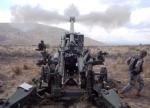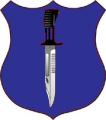The misleading notion of Nagl vs. Gentile
The HIC vs COIN debate that has been popularized by personas of LtCol. Nagl and Col. Gentile is erroneous in that it detracts from why we find ourselves involved in two ongoing COIN conflicts. In Iraq, it can be argued that we are involved in a COIN conflict because we handled the initial operations poorly, and failed to win in a matter that destroyed the enemies ability to continue to fight and that we failed to plan for after the shooting. The COIN fight in Afghanistan may have been unavoidable to some degree, but it can be argued that our failure to properly conduct the conventional operations has made the COIN fight harder. No conventional forces in theatre to trap and destroy Taliban and AQ forces allowing many to escape to fight again, and poorly planned operations by US forces later in the conflict such as Operation Anaconda are examples. What types of operations due we as country find ourselves most likely to initially conduct? My review of history suggests that punitive raids and preparing for major wars as a means of deterrence and policy role are the most likely. COIN operational knowledge will have little to do with our ongoing conflict with terrorism (that I predict we will see a resurgence of when the current OIF/OEF operations come to a close) or in our ability to deter aggressive nation states from attacking our allies overseas. In this sense Col. Gentile is right that we can not lose focus on our HIC capabilities. However, I would argue that we do combat operations incorrectly and that some of the fixes for this would lead to better performances in COIN and HIC operations. Properly trained, equipped, and supported forces can do both operations very effectively as has been discussed in depths in other threads on this board. So why do we have this argument about COIN vs HIC? I see three main reasons.
One, the command environment and culture leads to micromanagement and consolidation of forces. This further affects how we train and how we allocate resources.
Two, our methods of unit manning and training do not allow for units to develop a depth of combat knowledge and skills needed to operate in multiple conflict spectrums.
Three, despite vast public lip service, the armed forces failed to ever successfully incorporate the dreaded concepts of stability operations. This last point has dragged us into more COIN conflicts then anything else.
I will expand on the three points in follow on posts.
Reed














Bookmarks